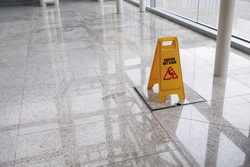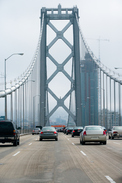
Under the law, punitive damages are available in premises liability cases, where the client can show that the defendant-owner performs or fails to perform an act that he know or should know will probably cause harm. Nolin v. National Conveniences Stores, Inc. (1979) In Nolin, the court found that the defendant's inattention to slip-and-fall danger "reflected defendant's overriding concern for a minimum expenses operation, regardless of the risks involved". Likewise, in Stoiber v Honeychuck (1980), the court concluded that the plaintiff was able to support her punitive damages allegations where she alleged that the defendant had actual knowledge of defective conditions in the premises, including leaking sewage, deteriorated flooring, failing ceiling, leaking roof, broken windows, and other unsafe and dangerous conditions.
It is often worth conducting at least a minimal investigation in a slip and fall / trip and fall cases where a claim for punitive damages can be made. The first step should be finding out whether prior similar complaints or notice of the condition were given to the land owner or their agents, and what, if anything, they have done to remedy those issues.
 RSS Feed
RSS Feed
